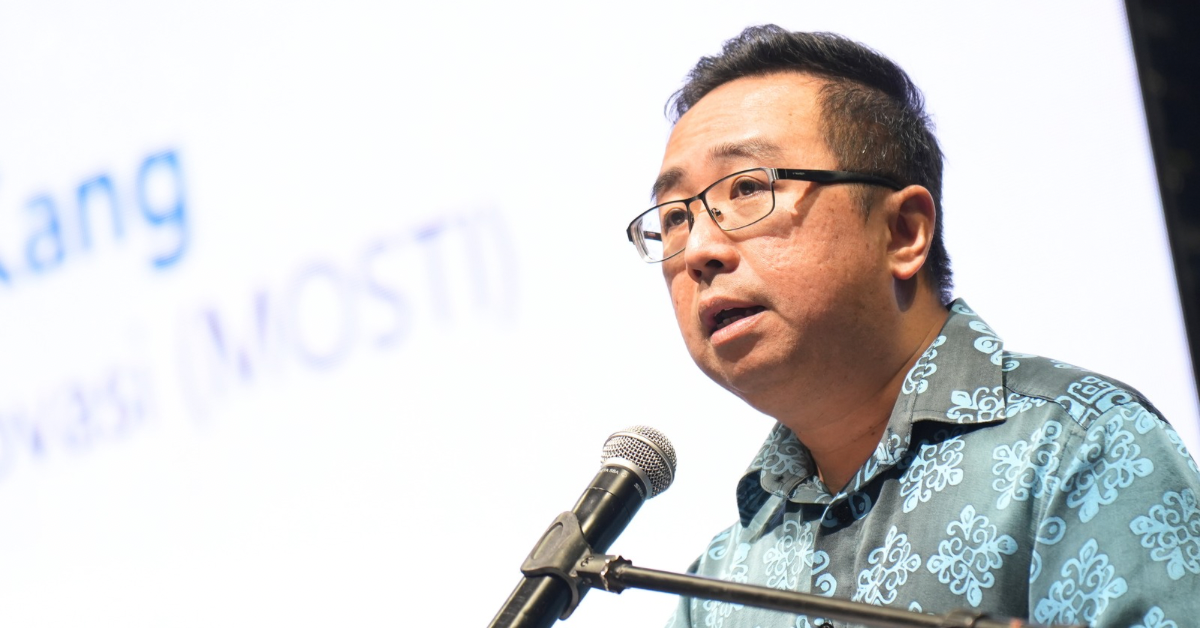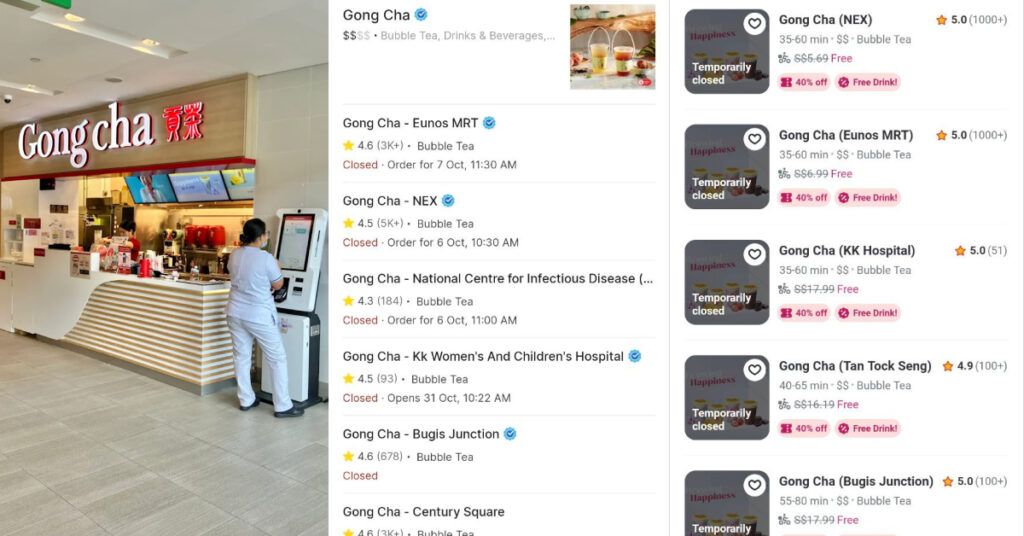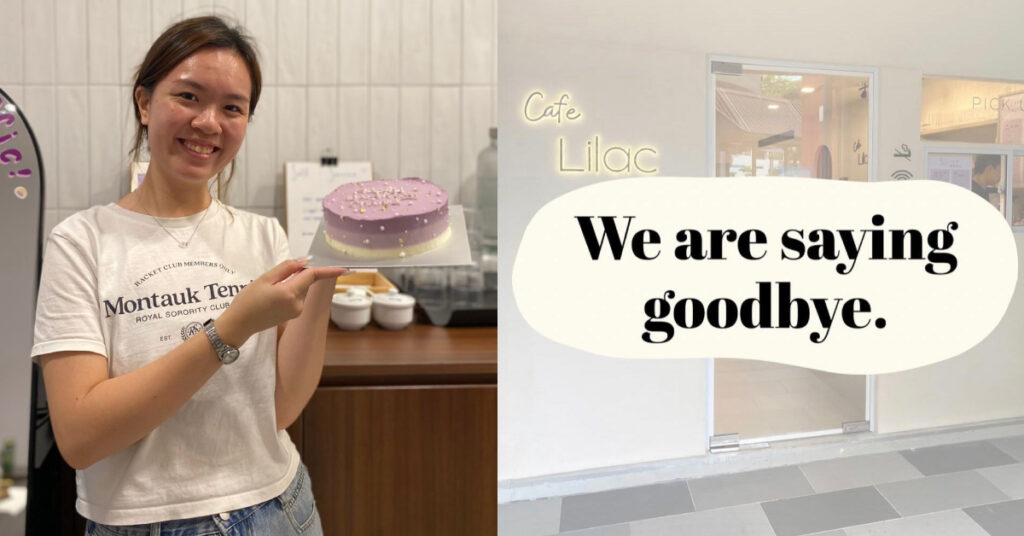Events and hospitality are two major industries where human interaction has always been a must-have.
We can’t be listening to robot panellists at an event, or speaking to a virtual receptionist at a luxury hotel, now, can we?
…Can we? Is that where we’re heading, with the supposedly rapid adoption of AI technologies, as the internet would have us believe?
Experts in the fields of events and hospitality shared their two cents at the MICE & Luxury Forum in Singapore, hosted by Sands China Ltd at its sister property, Marina Bay Sands.
The panellists we had the pleasure of listening to included:
- Mr. Glenn Gore – Chief Executive Officer, Affinidi Group
- Mr. Ian Roberts – Vice President Asia, Informa Markets
- Mr. Jason Ho – Co-founder, BEYOND International Technology Innovation Expo
- Ms. Rebecca Hallett – Vice President, Director of Experience, Jack Morton Worldwide, Asia
- Mr. Alan Watts – President, Asia Pacific, Hilton Hotels and Resorts
- Mr. Christian Westbeld – Managing Director, Raffles Hotel Singapore
- Mr. Michael Malik – Chief Operations Officer, Greater China, Marriott International
- Mr. Rainer Stampfer – President, Global Operations, Four Seasons Hotels and Resorts
Based on what they revealed, here are some insights into the future of AI in events and hospitality.
1. AI can be used to collect visitor data and answer the “whats”, but not the “whys”.
The main strength of AI is that it is capable of taking an immense amount of data and processing it.
It can tell hoteliers and event organisers the demographics of their audience, how long someone stayed at the hotel or a specific event booth, and more.
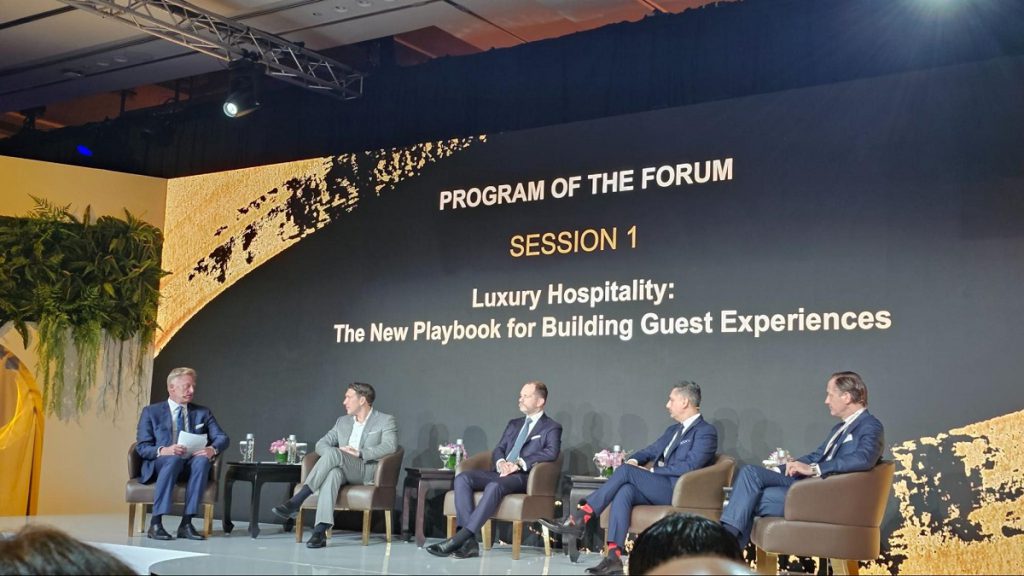
What time you arrived somewhere, what you’re currently doing, what you did yesterday—all those are data the AI can provide.
It can do this without fail, 24/7, as long as the system is maintained.
But it cannot tell the hoteliers or event organisers “why”. That’s because…
2. In all, AI provides a cumulative voice of visitors, which has its pros and cons.
Every time you interact with an AI technology, it’s learning from you. And it’s adding your experiences to its vast database of other people’s experiences of the same topic.
Essentially, we’re helping the AI learn, whether we know it or not. So, when you prompt the AI, you’ll get a response created from the millions of answers from other users, which can either be exactly what you need, or terrifyingly wrong (and detrimental).
Put simply, it can be akin to taking bad advice from the internet.
Hoteliers and event organisers can still use that data to predict a general sentiment or trend, but it will not be as trustworthy as getting their own data on the ground, through speaking to their own guests and visitors.
3. The sudden “death” of the metaverse might hit AI too, so events and hospitality sectors shouldn’t overhype it.
There’s something called the 6 Ds of Digital Disruption, which describes a road map showing what can happen when exponential technology is born.
It goes as follows:
- Digitalisation
- Deception
- Disruption
- Demonetisation
- Dematerialisation
- Democratisation
You can read more about each stage here, but of particular interest to this point are digitalisation and disruption.
The events industry specifically has gone through an accelerated digital transformation, with virtual events taking the place of in-person events during the previous few years.
But a lot of that technology overpromised, then under-delivered. This was when it moved from digitalisation to deception.
With any new(er) tech, it’s easy to overhype it. Thinking back to the metaverse craze that seemed to peak just about a year ago, I recall experiencing some similar virtual events that set high expectations, then didn’t quite meet them.
By now, it may seem as though the metaverse or virtual events are “dead”, and people have become disillusioned.
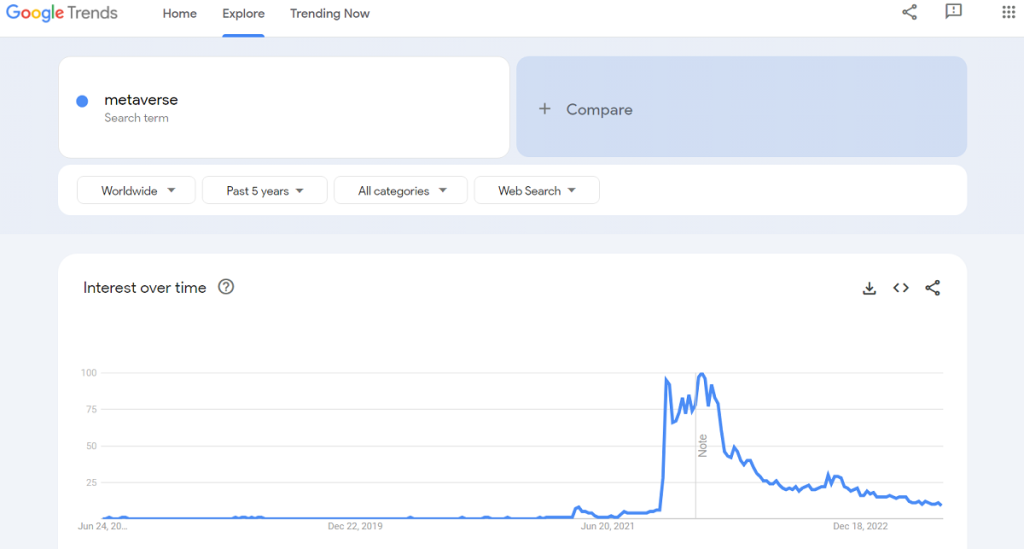
According to the 6 Ds, this is meant to happen though, and eventually the technology will explode back onto the scene. Seemingly out of nowhere, and better than ever, because in the time that the technology was “forgotten”, it matured behind the scenes.
This is the true moment of disruption, but it will probably take another decade or so before that happens for AI. Even then, experts believe that it will still only be able to augment and enhance our reality at the very most.
4. While generative AI can be “smart”, it still doesn’t understand how to use that data to a situation’s advantage.
As point 1 illustrated, AI can answer the “whats”, and not the “whys”. Cumulative and generative AI has community expertise (it learns from us, as per point 2), but that also means it has a bit (or a lot) of groupthink.
So, if you ask it a question or a prompt, chances are, you’re going to get the same response that hundreds of others with the same question got. It leads to a generic experience, and that’s not what many of us want.
When we spend money on a service or experience, we want something unique. When we stay at a hotel or visit an event, we want to feel catered to, and that personalisation is something that only another human can truly provide.
Another human has the advantage of emotional intelligence, and is able to understand, recognise, and influence another person’s emotions on the spot.
This is important since…
5. We’re heading into the age of curation, which AI can complement.
Bespoke, personalised, unique, customised, curated. These words are commonly heard nowadays in service-focused sectors, again, because we all want to feel special.
There’s little to no debate over AI’s ability to collect data, so using that data, hoteliers and event organisers can actually cater experiences to individual guests.
For example, if the data knows and shows that a specific guest is arriving on a late-night flight before checking in, a hotelier can use that information and tell the turndown service to prepare calming aromatherapy and a cup of warm tea to increase the guest’s comfort level.
Some hotels are already doing this, even without the use of AI. When we stayed over at Marina Bay Sands, my boss, Sarah, realised that the turndown service for her room had helpfully placed a mousepad on her work desk and provided a cable tie because they noticed she had been working on her laptop without either.

So, imagine how much further we can take things with the help of AI. Your guest will have their curated experience laid out for them before they even arrive.
These are things that guests will find difficult to forget, and it’s likely that the next time they visit the destination, this hotel will be at the top of their list for a stay.
6. We’ll see AI being used to enhance productivity in hotels and events, and even beyond those sectors.
With all that data at their fingertips, hoteliers and event organisers will be empowered to make better decisions much faster, which means improved productivity.
This saves time for both the hosts and the guests, creating a more seamless experience.
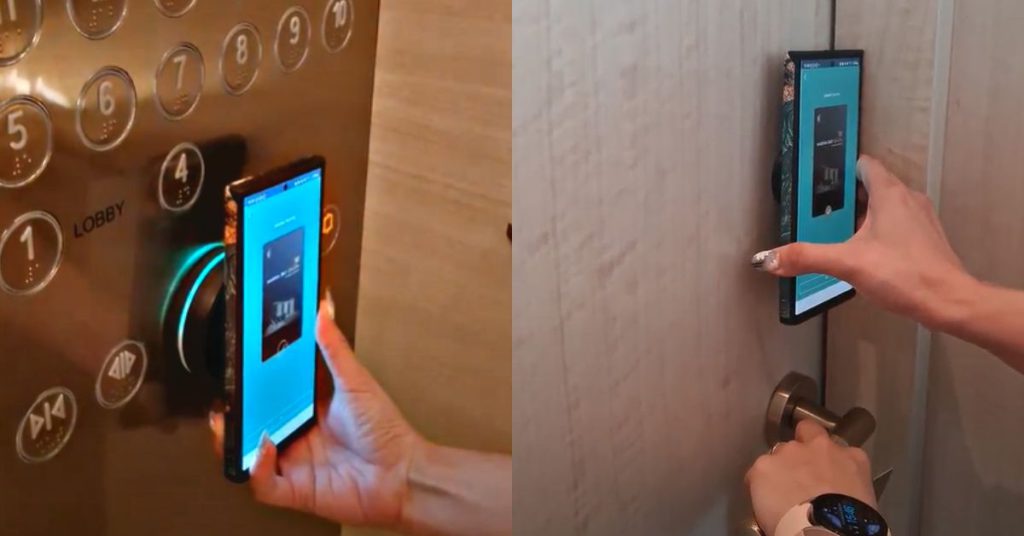
7. AI cannot fully replace humans, so we shouldn’t stress too much about its initial impact in many industries.
The first few areas that AI will tackle are the 3D jobs, which are dirty, dangerous, and demeaning (or difficult).
More repetitive or remote task-based jobs will likely be the first few to get replaced, because that manpower can then be better allocated elsewhere.
AI can scrape and regurgitate information, which is why you may already see it being used in content creation. It’s much faster at doing it, and doing so without hesitation or complaint or any of those other human emotions.
In fact, one of the event organisers behind the MICE & Luxury Forum actually shared that their panel topics had been generated by AI. This allowed them to focus on the other elements of the event, leading to a memorable forum.
But at the end of the day, AI doesn’t have opinions. Just try asking ChatGPT, Bard, or Bing for their opinions on something, and see what they say.
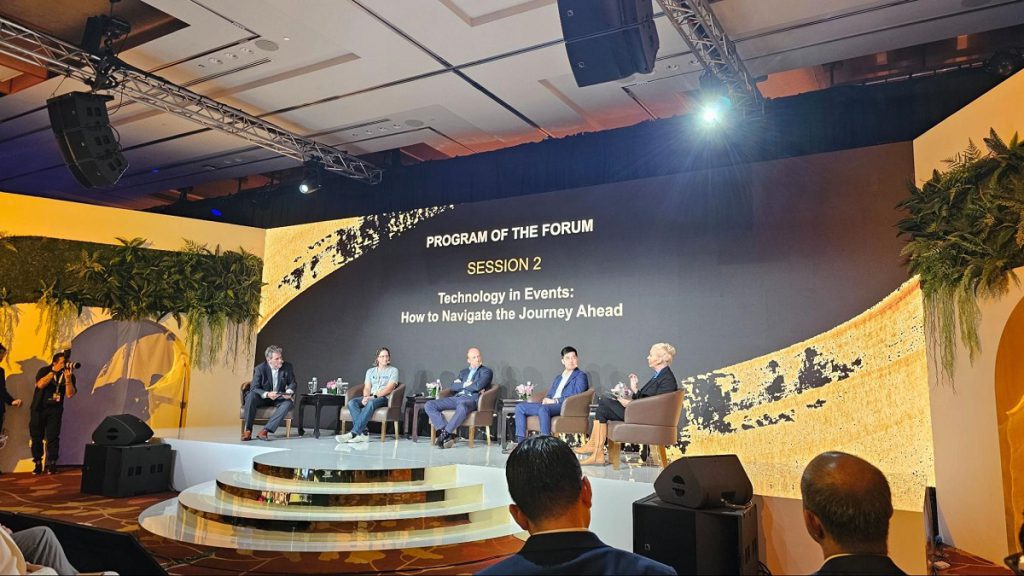
So, as long as your opinion is needed at your job, you won’t have to worry too much. Experts believe that there will be a pendulum swing phenomenon, whereby we’ll probably enter this phase of thinking, “Wow, this efficient tech is amazing and executes tasks so much better than people.”
Then the pendulum will swing the other way, and we’ll start to say, “Actually, I want to hear from this individual, because I like their opinion, style, art, and curation.”
8. Overall, the human need for interaction will always be stronger.
Events and hospitality are high-touch industries, and they’ve been successful and thriving because they satisfy that base human need for interaction.
Only a human can provide another human with the value of a deep and layered personal interaction, which differentiates one individual from another, one company from another, and so on.
Technology like AI will simply be one piece of the puzzle to help us do all that better.





